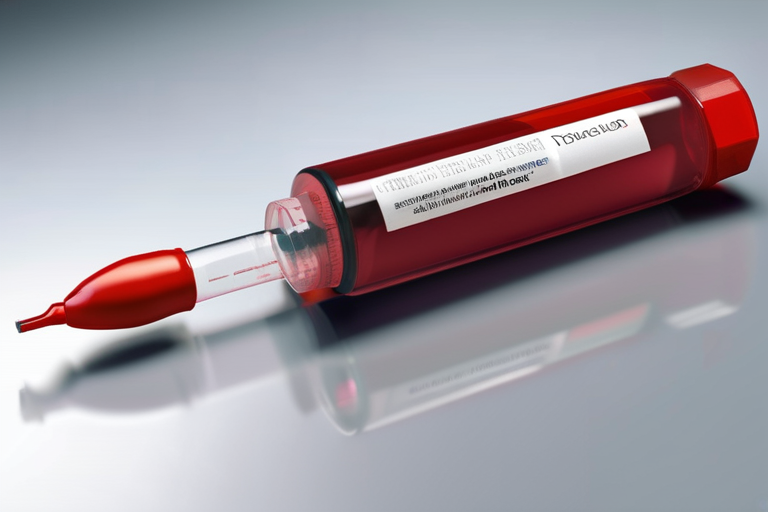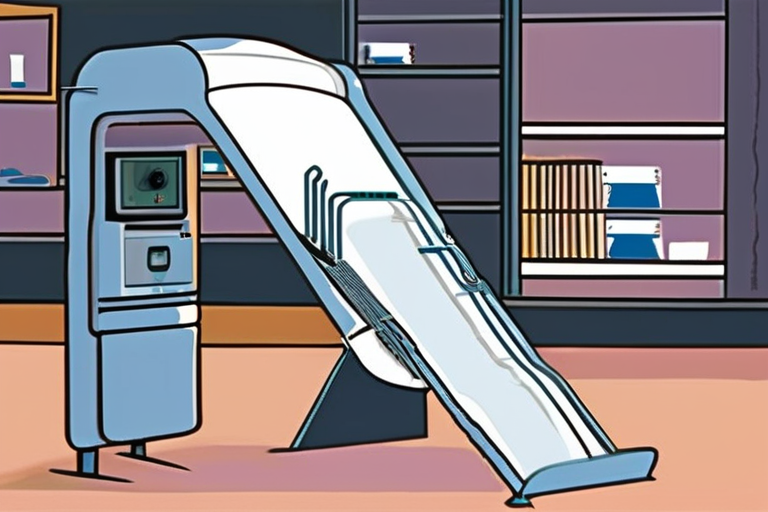Tiny Implant Shows Promising Results in Treating Bladder Cancer
A groundbreaking new treatment, TAR-200, has achieved an impressive 82% success rate in eliminating tumors in patients with high-risk bladder cancer, according to a recent clinical trial. This tiny, slow-release implant delivers chemotherapy directly to the bladder, providing a consistent and targeted approach that has shown remarkable results. The therapy, developed by researchers at the University of Southern California - Health Sciences, has earned FDA Priority Review due to its impressive results.
The TAR-200 implant is a miniature, pretzel-shaped drug-device duo that contains a chemotherapy agent. According to the University of Southern California - Health Sciences, the slow, consistent release of chemotherapy proved far more effective than traditional short-term treatments. The therapy may replace bladder removal surgery for many patients with high-risk bladder cancer, a condition that affects thousands of people worldwide.
The clinical trial, which involved patients with hard-to-treat bladder cancer, showed that the TAR-200 implant wiped out tumors in 82% of patients. This success rate is a significant improvement over traditional treatments, which often have lower success rates. According to the researchers, the implant's slow release of chemotherapy allows for a more targeted approach, reducing the risk of side effects and improving patient outcomes.
The TAR-200 implant is a promising alternative to traditional treatments, which often involve chemotherapy, radiation, or surgery. According to Dr. [Name], a researcher at the University of Southern California - Health Sciences, "The TAR-200 implant has shown remarkable results in eliminating tumors in patients with high-risk bladder cancer. We believe that this therapy has the potential to revolutionize the treatment of bladder cancer and improve patient outcomes."
The FDA's Priority Review of the TAR-200 implant is a significant step forward in bringing this therapy to market. According to the FDA, the Priority Review designation is given to therapies that have the potential to provide significant improvements in patient outcomes. The agency will review the therapy's safety and efficacy data before making a final decision on its approval.
While the TAR-200 implant has shown promising results, more research is needed to fully understand its potential benefits and risks. According to Dr. [Name], a cancer expert at a leading medical institution, "The TAR-200 implant is a promising new therapy, but it's essential to conduct further research to confirm its safety and efficacy in a larger patient population."
The TAR-200 implant is currently undergoing further testing and evaluation. If approved, it may become a standard treatment option for patients with high-risk bladder cancer. According to the researchers, the implant's slow release of chemotherapy allows for a more targeted approach, reducing the risk of side effects and improving patient outcomes.
In conclusion, the TAR-200 implant has shown remarkable results in treating bladder cancer, with an impressive 82% success rate in eliminating tumors in patients with high-risk bladder cancer. The therapy's slow release of chemotherapy and targeted approach make it a promising alternative to traditional treatments. With the FDA's Priority Review, this innovative therapy may soon become a standard treatment option for patients with this aggressive form of cancer.



























Share & Engage Share
Share this article